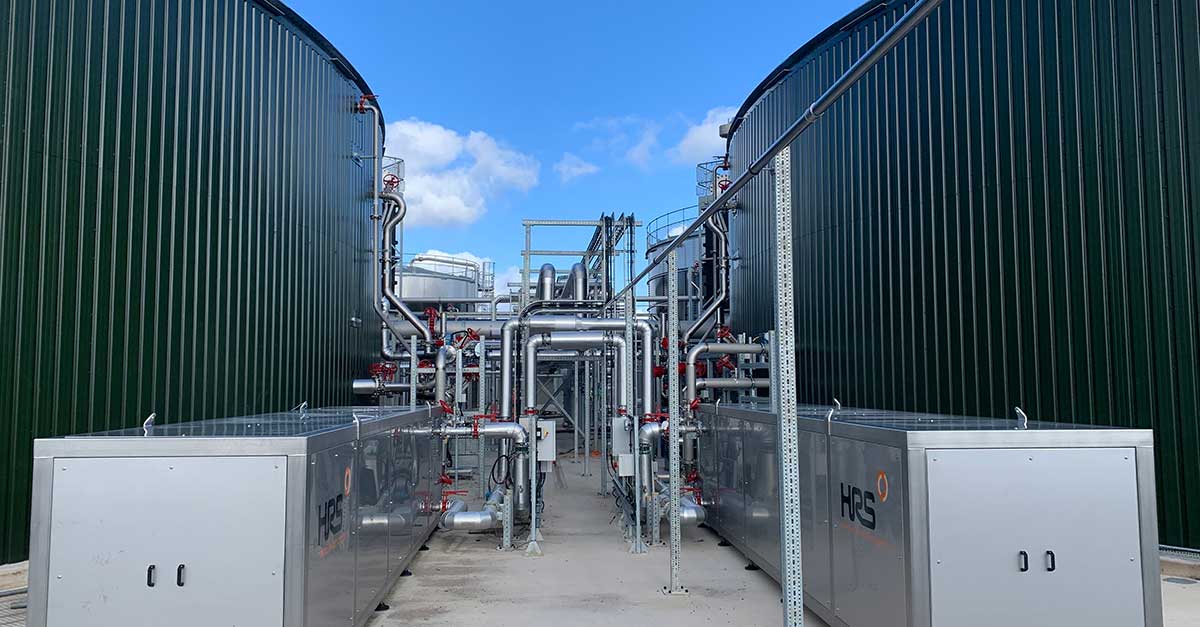Canada Ready to Unleash Power of Biogas

The news that Canada saw a 50% increase in operational biogas capacity over the last decade is great news for both the economy and the environment, as is the strong outlook for future development contained in the latest report from the Canadian Biogas Association (CBA).
The news was contained in the Canadian 2020 Biogas Market Report¹, published in October 2021. In it the CBA revealed that the country now has 279 operating biogas projects capturing methane from agricultural and community waste and turning it into clean electricity and Renewable Natural Gas (RNG). In fact, anaerobic digestion now produces as much energy as nine large hydro-electric dams or 300,000 m² of solar panels.
These biogas plants are a mixture of agricultural units, industrial digesters, plants at wastewater treatment facilities and landfill gas capture systems. The report points out that these plants create numerous additional advantages in addition to the greenhouse gas (GHG) and climate change benefits, including the stabilization of nutrients and production of sustainable biofertilizer, and improvements to soil, air, and water quality.
While it may be disappointing that ‘the vast majority of Canada’s biogas potential remains untapped,’ the scope of this potential, which is estimated at 155 PJ of energy (equivalent to 100 large hydro dams) is impressive and shows the scope for growth in the industry: ‘the sector has the opportunity to bring more than eight times more biogas energy online.’ The biggest potential growth comes from the agricultural and landfill sectors, although here is still additional feedstock capacity in other areas such as wastewater treatment and industrial AD.
The report is also concludes that, ‘Most signals point to the 2020s being an even more impressive decade for Canada’s biogas growth. In 2030, we could be looking back on a decade that saw Canada multiply its biogas output exponentially.’ However, if the country is to maximise the benefits of this huge potential it is important that both new and existing biogas plants operate at the highest levels of efficiency.
HRS Heat Exchangers produce a range of systems which are specifically designed to improve the efficiency of AD plant operation, add value to digestate production (which is a valuable, renewable and low-carbon organic fertiliser and soil conditioner) and prolong the life of AD plant components. Among these systems are our Digestate Pasteurisation System (DPS), Digestate Concentration System (DCS), and our Biogas Dehumidification System (BDS Series).
HRS also manufacture a range of heat exchangers for use in biogas production including the HRS Unicus Series of scraped surface heat exchangers for use in thermal hydrolysis to increase biogas production, the G Series for exhaust gas cooling and heat recapture, and the DTI Series for feedstock and digestate heating.
With our recent acquisition by Calgary-based Exchanger Industries we look forward to building on our existing projects in Canada and helping biogas projects across all sectors to increase plant efficiency, prolong operational life and maximise both the economic and environmental benefits.
¹ https://biogasassociation.ca/resources/canadian_2020_biogas_market_report